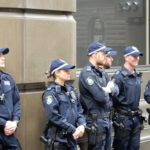State of Emergency Powers and COVID-19

Victoria’s ‘State of Emergency’ was due to end on 13 September 2020 but, in recent days, the Premier Daniel Andrews is pushing for the extraordinary powers afforded to the state to remain in place for another 12 months.
While most are of the view that the spread of COVID-19 needs to be controlled in the southern state, the Government’s plan to extend the State of Emergency has received widespread condemnation because it not only expands the ability of the Government to make rules without discussion and debate in Parliament, and without actually passing legislation, but also because it gives some people in positions of authority extraordinary legal powers – bringing about what can only be described as authoritarianism.
Extraordinary powers in an emergency
The State of Emergency is legislated under Victoria’s Emergency Management Act, which grants additional powers to the Minister for Police and Emergency Services to respond to ‘emergency’ situations, in this case the COVID-19 pandemic. Already, police powers have been significantly increased and, so too, have the powers of ‘protective services officers’.
In addition to Victoria’s Emergency Management Act, State of Emergency provisions are also included in the Public Health and Wellbeing Act. And these types of powers are not limited to Victoria. All states and territories have passed Public Health Acts with provisions which enable authorities to issue orders and directions in times of crisis.
Under the Victorian legislation, the state’s Chief Health Officer has the power to issue an extremely broad range of legally enforceable public health directions, including curfews, quarantines, face masks, and other rules which limit the freedom of movement and association.
The state of emergency also allows him and other authorised officers to detain any person “for the period reasonably necessary to eliminate or reduce a serious risk to public health”.
They also have the power to search premises without a warrant and “give any other direction” they consider to be “reasonably necessary to protect public health.”
These are sweeping and authoritarian powers.
Six month limit
Currently, the Victorian Public Health and Wellbeing Act allows for a state of emergency to run for a maximum of six months. The reason for this limitation is that democracies have recognised that extended restrictions on basic freedoms and legal safeguards mean that a society essentially becomes an authoritarian regime, whereby those in power exercise virtually unfettered power over citizens.
But Victorian Premier Daniel Andrews wants this important limitation repealed in his state, to extend the state of emergency for another 12 months, bringing it to 18 months in total.
The state of emergency would still have to be declared by the Government in four-week blocks, as it is now, and the Premier stressed he was not seeking an “unlimited” extension.
But, if the legislation passes, it will be enshrined and many believe future governments – reluctant to surrender power and control over the community – would be unlikely to repeal it.
Many are concerned the proposal is just another example of legislation being ‘snuck through’ under the guise of protecting against a threat to the general public, and then, over time, creeping into permanence.
While no one argues that the second wave of the pandemic has hit Victoria hard, it has to be acknowledged that authoritarian control is taking its toll on the mental and emotional wellbeing of the state’s residents.
COVID cases are falling
For many, it simply makes no sense to extend the timeframe for the State of Emergency for another 12 months, when COVID cases are beginning to fall.
Despite recording 15 further deaths earlier this week, the number of new cases plummeted to 116 from the figure reported over the weekend of 208. This is the lowest number of daily cases for the state since 5 July 2020, when there were 74 – that was also the last time the figure was below 100.
‘Extraordinary power grab’
The Victorian opposition leader Michael O’Brien says he won’t be supporting the move for an extension. He describes it as an ‘extraordinary power grab’, and the act of a Premier ‘whose power has gone to his head’.
“We understand that in a pandemic, sometimes there need to be restrictions. But there’s a reason why the state of emergency, in law, is limited to six months,” said Mr O’Brien.
”No premier, no politician, should have that degree of power over the lives of Victorians indefinitely.”
It seems the concerns expressed in May 2020 that the Victorian Government wants COVID-19 powers to be permanently expanded may unfortunately be coming to fruition.








